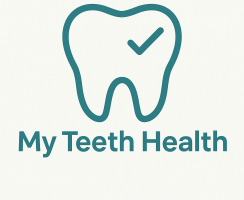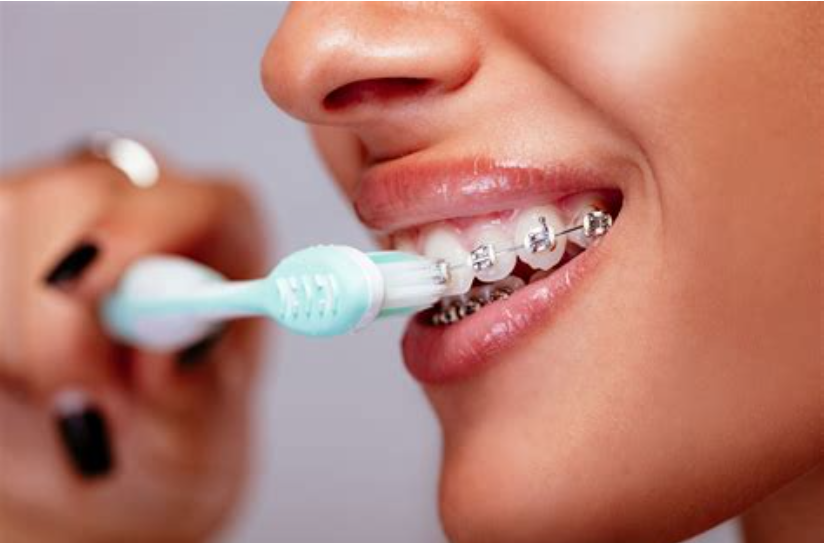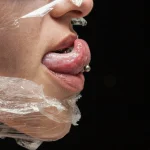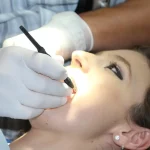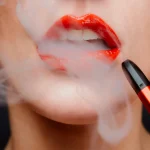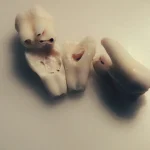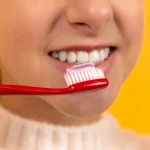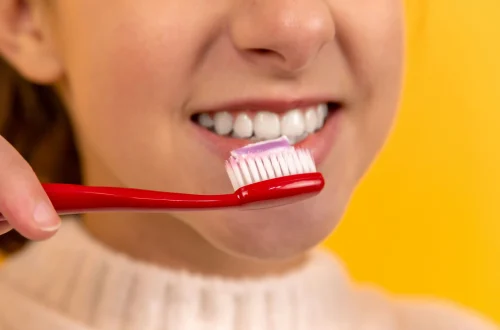Should you brush your teeth before or after breakfast? This common morning dilemma has sparked debates among dental professionals and everyday health enthusiasts alike. In this article, let’s find out the answer.
Why Morning Brushing Matters
What happens in your mouth when you sleep
During the night, your mouth becomes a breeding ground for bacteria due to reduced saliva production, which normally helps neutralise acids and wash away food particles. Overnight, this reduction in saliva allows bacteria to thrive, forming plaque and causing morning breath. Left unaddressed, these bacteria can contribute to tooth decay, gum disease, and other oral health issues. Brushing your teeth in the morning removes the bacterial layer and helps prevent the onset of these problems.
The importance of removing bacterial buildup
Overnight bacterial growth can produce acids that erode enamel, increasing the risk of cavities. Studies show that plaque buildup during sleep can be particularly aggressive due to warm, humid climates that promote bacterial activity. Regular morning brushing is crucial for reducing plaque levels and maintaining gum health. Additionally, it reduces halitosis, improving social interactions during work or school.
Should You Brush Your Teeth Before or After Breakfast?
It can be viable to brush teeth before or after breakfast. But their effects can be different.
Brushing before breakfast
Brushing your teeth before breakfast offers multiple advantages. First, it removes the overnight bacterial load before you consume food. Second, fluoride from toothpaste forms a protective layer on the enamel, which acts as a shield against acids in foods and beverages. Scientific studies indicate that brushing before eating reduces enamel erosion and helps maintain a healthier oral microbiome. For individuals in Singapore who consume high-sugar or acidic breakfasts, this step is especially critical.
Brushing after breakfast
Brushing after breakfast is acceptable if you allow sufficient time for saliva to neutralise acids—typically around 30 minutes. This is especially relevant if your breakfast includes citrus fruits, fruit juices, or coffee. Brushing immediately can abrade softened enamel, leading to long-term dental damage. During this waiting period, rinsing with plain water or using a fluoride mouthwash can help neutralise acids while maintaining oral hygiene.
Is it better to brush teeth before breakfast or after?
Dental professionals in Singapore generally recommend brushing before breakfast for optimal enamel protection and bacterial control. However, brushing after breakfast can be appropriate if done correctly, particularly for those who consume foods likely to leave residue or stains. Ultimately, both methods are valid when timed and executed properly, and personal factors such as diet, oral sensitivity, and lifestyle play a key role in determining which approach works best for you.
How to Decide Whether to Brush Teeth Before or After Breakfast
Factors influencing your decision to brush teeth before or after breakfast
Your personal approach should consider dietary choices, enamel sensitivity, and daily schedule. Individuals with highly acidic breakfasts or sensitive teeth may benefit from brushing before breakfast, whereas those consuming neutral foods may opt to brush after. Monitoring oral health symptoms such as sensitivity, bleeding, or staining can help tailor the best routine. Singaporean dental experts often recommend maintaining flexibility to accommodate occasional deviations while keeping a consistent hygiene practice.
Waiting approximately 30 minutes after eating acidic meals is essential to protect softened enamel. This interval allows the mouth’s natural saliva to neutralise acids, stabilising the enamel and minimising the risk of abrasion. Those consuming frequent acidic beverages should be particularly attentive to this practice to prevent cumulative enamel damage over time.
How to Properly Brush Teeth
How to brush teeth
For optimal oral health, use a soft-bristled toothbrush and fluoride toothpaste. Brush at a 45-degree angle using gentle circular motions, covering all surfaces of each tooth. Brush for at least 2–3 minutes, paying special attention to molars and gum lines. Avoid aggressive scrubbing to prevent enamel wear and gum recession.
How to properly brush teeth with braces without damaging wires
Those with braces should use an orthodontic or interdental brush to reach areas around brackets and wires. Brush gently both above and below brackets, and consider using fluoride mouthwash to strengthen enamel. Regular professional check-ups in Singapore can help ensure braces are not compromised during brushing, maintaining both hygiene and orthodontic results.
Can You Brush Teeth Too Much?
Maintaining proper oral hygiene is crucial, but overbrushing can lead to gum recession and enamel erosion. While brushing three times a day is generally safe if done correctly, excessive force or abrasive techniques may damage gums and tooth surfaces. Signs of overbrushing include bleeding gums, heightened tooth sensitivity, and noticeable enamel wear.
| Daily Brushing Frequency | Effect | Expert Advice |
|---|---|---|
| 1 time/day | Insufficient plaque removal and bacterial control | Not recommended; increased risk of cavities |
| 2 times/day | Optimal balance for most adults | Recommended by Singapore dental associations |
| 3 times/day | Safe with correct technique | Monitor for signs of overbrushing, use soft-bristled brushes |
Can You Brush Teeth While Fasting?
Brushing teeth during fasting is generally acceptable in Singapore, as long as toothpaste is not swallowed. It helps maintain oral hygiene, reduces morning breath, and prevents bacterial accumulation during fasting periods such as Ramadan. Using a non-flavoured or mild toothpaste can minimise the risk of breaking fast while maintaining oral health.
Conclusion
The decision to brush before or after breakfast depends on individual preferences, dietary habits, and enamel sensitivity. Brushing before breakfast is widely recommended for bacterial control and enamel protection, while brushing after breakfast can be effective if appropriately timed. Incorporating proper brushing techniques, accommodating braces if necessary, and avoiding overbrushing ensures strong, healthy teeth and gums. By tailoring your routine to personal needs, you can maintain optimal oral hygiene in Singapore’s local context.
Frequently Asked Questions
1. Is it harmful to brush immediately after orange juice?
Yes, acidic drinks soften enamel temporarily. Wait 30 minutes or rinse with water before brushing to prevent enamel damage.
2. Is brushing your teeth 3 times a day bad?
Brushing your teeth three times a day is generally not bad—in fact, it can be beneficial if done correctly. Dentists often recommend brushing twice a day, but a third time, usually after lunch or a sugary snack, can help reduce plaque and prevent cavities.
3. Should children in Singapore brush before or after breakfast?
Brushing before breakfast is generally recommended to remove overnight bacteria. Brushing after is fine if proper timing is observed and enamel is protected.
4. How do I maintain oral hygiene while fasting during Ramadan?
Brush before the pre-dawn meal (Suhoor) and avoid swallowing toothpaste if brushing during fasting. Rinse with water as needed.
5. Is using mouthwash sufficient if I skip brushing in the morning?
Mouthwash reduces bacteria temporarily but does not remove plaque. Brushing remains essential for complete oral hygiene and enamel protection.
References
- Penn Pacific Dental Center: THE EFFICIENCY OF ELECTRIC TOOTHBRUSHES: ADVANTAGES FOR IMPROVED ORAL HEALTH
-
American Dental Association. (2025). Brushing before or after breakfast. ADA News. https://adanews.ada.org/huddles/brushing-before-or-after-breakfast/ adanews.ada.org
-
Healthline. (2024). Should you brush your teeth before or after breakfast? Healthline. https://www.healthline.com/health/should-you-brush-your-teeth-before-or-after-breakfast Healthline
-
National Health Service. (2024). How to keep your teeth clean. NHS. https://www.nhs.uk/live-well/healthy-teeth-and-gums/how-to-keep-your-teeth-clean/ nhs.uk
-
Delta Dental. (2019). Brushing immediately after meals? You may want to wait. Columbia University Irving Medical Center. https://www.cuimc.columbia.edu/news/brushing-immediately-after-meals-you-may-want-wait
